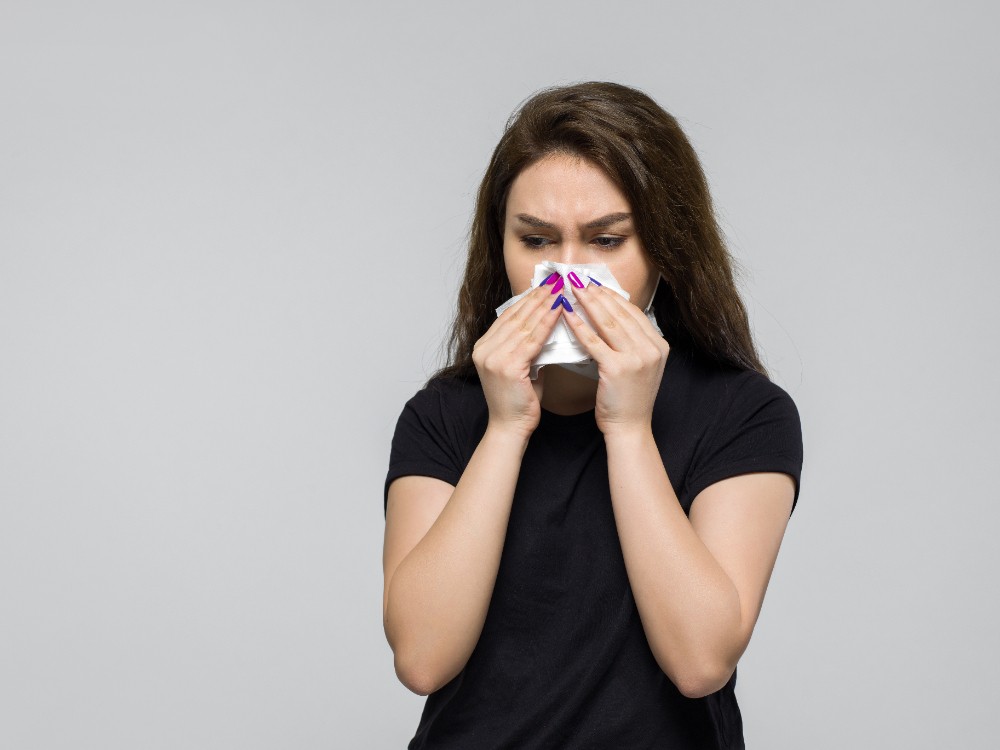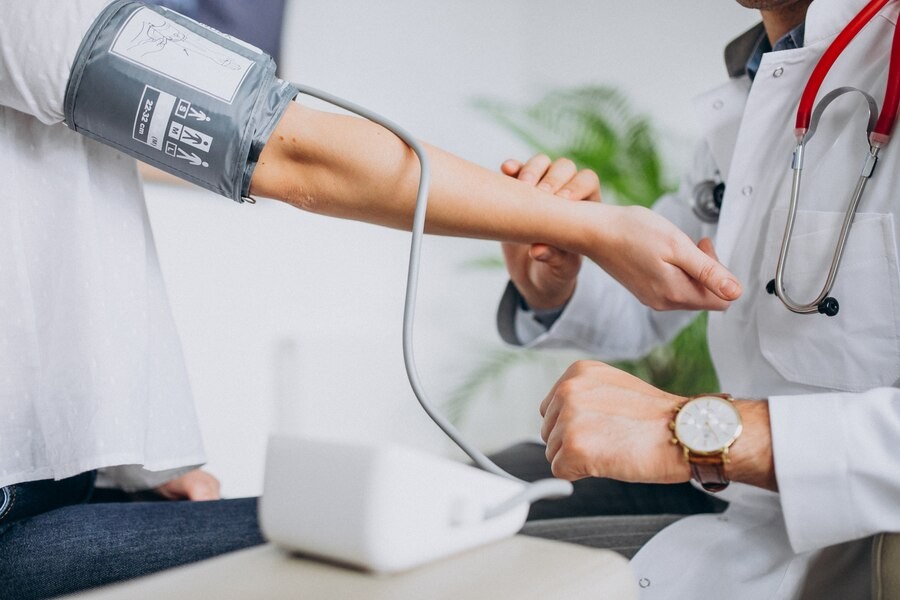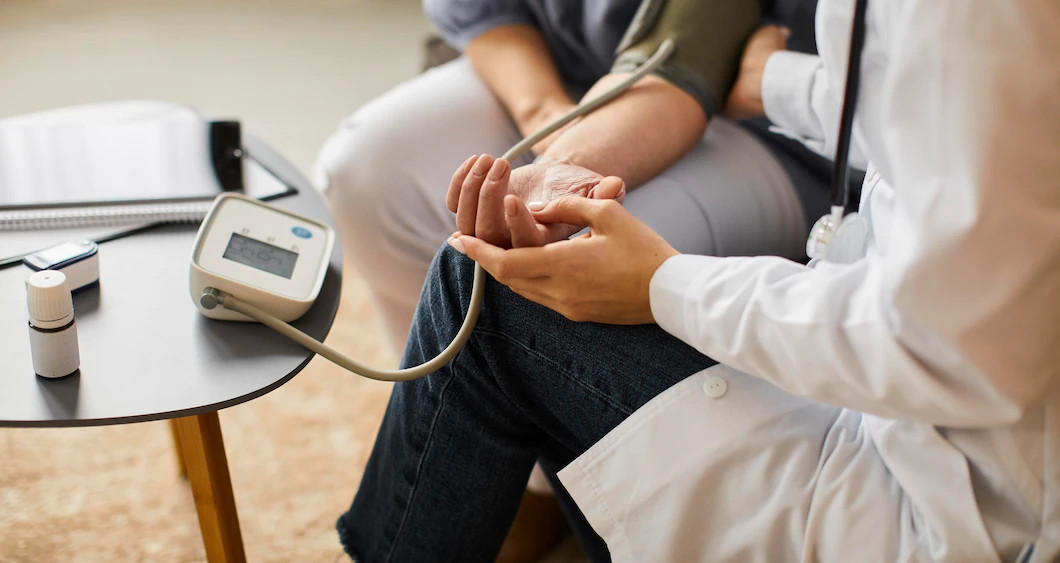Mimisan atau epistaksis adalah perdarahan yang terjadi di hidung. Kondisi ini disebabkan oleh kondisi udara yang kering dan adanya gesekan dalam hidung yang menyebabkan pembuluh darah halus di dalam hidung pecah. Selain itu, muncul anggapan bahwa mimisan juga bisa terjadi akibat tekanan darah tinggi. Benarkah demikian?
Hubungan Antara Tekanan Darah Tinggi dengan Mimisan
Tekanan darah tinggi adalah kondisi dimana hasil pemeriksaan tekanan darah Anda menunjukkan angka lebih dari 130/80 mmHg. Hipertensi umumnya tidak menunjukkan gejala, namun berisiko menyebabkan kondisi medis lainnya seperti stroke, penyakit jantung, atau gagal jantung.
Hubungan antara tekanan darah tinggi dan mimisan sering menjadi perdebatan di dunia medis. Sejumlah penelitian menyebutkan bahwa tekanan darah tinggi dan mimisan tidak menunjukkan hubungan sebab akibat di antara keduanya, namun banyak penelitian yang menunjukkan bahwa hipertensi merupakan faktor risiko terjadinya mimisan dan terkait langsung dengan kondisi tersebut.
Penelitian lain di tahun 2020 menyebutkan bahwa, orang yang mengalami hipertensi 1,47 kali lebih mungkin mengalami mimisan daripada mereka yang tidak hipertensi. Studi lain juga mengungkapkan bahwa orang dengan tekanan darah tinggi akan memiliki kebutuhan rawat inap yang lebih tinggi untuk mimisan dibandingkan dengan mereka yang tidak hipertensi.
Hingga saat ini para peneliti tidak menemukan hubungan yang jelas antara mimisan dengan tekanan darah tinggi. Para ahli menyimpulkan bahwa tekanan darah tinggi tidak menyebabkan mimisan, namun pendarahan akan lebih sulit dikendalikan pada kasus mimisan dengan hipertensi.
Baca Juga: Panduan Orang Tua jika Anak Mimisan
Penyebab Mimisan
Mimisan sebagian besar hanya terjadi pada satu lubang hidung, namun bisa juga terjadi pada kedua lubang hidung secara bersamaan. Penyebab utama mimisan adalah udara kering dan cuaca yang panas atau lembap. Kondisi ini menyebabkan membran hidung mengering, berkerak, dan pecah-pecah sehingga membuat hidung lebih mudah berdarah saat digosok, dicungkil, atau saat Anda membuang ingus.
Mimisan juga bisa disebabkan oleh hal lainnya seperti:
- Infeksi
- Alergi
- Paparan iritan bahan kimia
- Berada di dataran tinggi sehingga berisiko menyebabkan kekurangan oksigen
- Deviasi septum
- Semprotan hidung
- Kelainan perdarahan
- Penyalahgunaan alkohol
- Leukemia
- Kehamilan
Penanganan Mimisan
Mimisan umumnya tidak berbahaya dan bisa diatasi dengan pengobatan rumahan. Untuk meredakan mimisan, Anda bisa mencoba langkah berikut:
- Duduk tegak atau berdiri dan condongkan kepala sedikit ke depan untuk mencegah darah mengalir ke tenggorokan.
- Tampung darah dengan tisu atau lap kering.
- Jepit cuping hicung (bagian hidung yang lunak yang membentuk pangkal hidung) untuk menghentikan pendarahan.
- Jepit selama beberapa menit hingga perdarahan berhenti.
Selain cara di atas, Anda juga bisa menempelkan es batu di pangkal hidung untuk menghentikan perdarahan. Sebaiknya hindari memiringkan kepala ke belakang, karena dapat menyebabkan darah mengalir ke belakang tenggorokan. Apabila cara tersebut tidak berhasil, sebaiknya segera periksakan ke dokter.
Baca Juga: Kapan Harus ke Dokter Saat Mimisan Terjadi?
Pencegahan Mimisan
Mimisan tidak selalu dapat dicegah, tetapi ada beberapa hal yang bisa Anda lakukan untuk membantu mengurangi risiko terjadinya mimisan, yaitu:
- Gunakan pelembap udara.
- Berhenti merokok.
- Hindari mengorek hidung terlalu keras.
- Hindari membuang ingus atau menggosok hidung terlalu keras.
Mimisan adalah kondisi yang ringan namun sering kali mengindikasikan penyakit lainnya. Meskipun belum diketahui hubungan yang jelas antara mimisan dan tekanan darah tinggi, sebaiknya Anda waspada jika mengalami kedua kondisi tersebut.
Apabila memiliki pertanyaan seputar kesehatan maka sebaiknya periksakan ke dokter atau manfaatkan fitur konsultasi pada aplikasi Ai Care yang bisa diunduh melalui App Store atau Play Store.
Mau tahu informasi seputar penyakit lainya? Cek di sini, yah!
- dr Nadia Opmalina
The Healthline Editorial Team. (2024). Does Having High Blood Pressure Cause Nosebleeds?. Available from: https://www.healthline.com/health/high-blood-pressure-hypertension/high-blood-pressure-nose-bleed
Smith, H. (2023). Does high blood pressure cause nosebleeds?. Available from: https://www.medicalnewstoday.com/articles/high-blood-pressure-and-nosebleeds
Mayo Clinic Staff. Nosebleeds. Available from: https://www.mayoclinic.org/symptoms/nosebleeds/basics/causes/sym-20050914
Cleveland Clinic. Nosebleed (Epistaxis). Available from: https://my.clevelandclinic.org/health/diseases/13464-nosebleed-epistaxis











